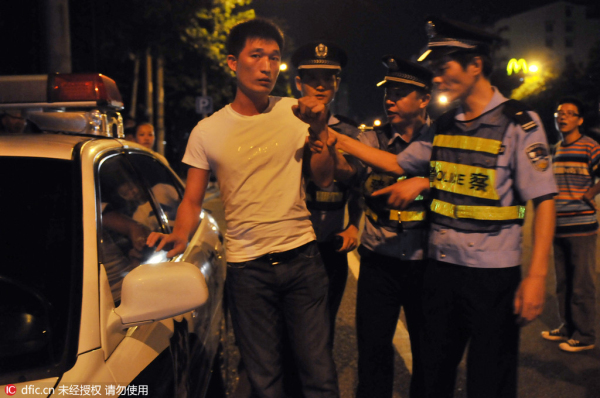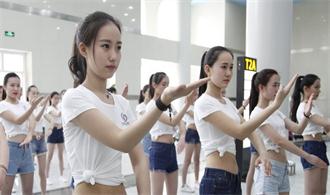Publishing photos of rule-breakers online violates their right to privacy
(China Daily) Updated: 2016-04-22 07:39
 |
|
Police officers in Fuzhou are punishing drivers who break the rules.[Photo/IC] |
Since last week, police in Fuzhou, capital of Southeast China's Fujian province, have been using high-definition cameras to take photos of jaywalkers. But they not only fined three people for jaywalking, they also published their photos online. That move might violate the legal rights of the rule-breakers, said a Thursday comment in Beijing News:
Everybody dislikes jaywalkers because they threaten the life and safety of not only themselves but also other people who abide by the law. Those walking across the street amid red traffic lights deserve legal penalties such as fines.
But the penalties they receive must be strictly according to the law. Of course, the police have the power to take photos of them and use the photos as electronic evidence. That's legal.
However, it remains questionable whether the police have the power to publish the photos. Even lawbreakers have the right to privacy and their records should be open to the police only. By publishing wrongdoers' photos online, the police have actually exceeded the power granted to them by the law.
According to the Law on Road Safety, penalties for traffic rule violations include warnings, fines, suspending or confiscating driving licenses, and detainment; for pedestrians and cyclists, the penalties include warnings, fines, and the confiscation of bicycles. Taking photos and keeping them as evidence helps punish rule-breakers, but to publish them online is not legally specified, therefore doing so amounts to an abuse of power.
Many may argue that the penalties are rather light because the fine is too low and giving a warning does not help prevent people from violating the rules again. That might be reasonable, but according to the principle of rule of law, the police may not impose additional penalties until the legislative body changes the law.
We have made the rules via our legislators, and everybody, citizens and law enforcers alike, is supposed to follow them. If anybody has any new idea, there is the legislative body and the legislators are to decide whether to change the law first.

I’ve lived in China for quite a considerable time including my graduate school years, travelled and worked in a few cities and still choose my destination taking into consideration the density of smog or PM2.5 particulate matter in the region.











